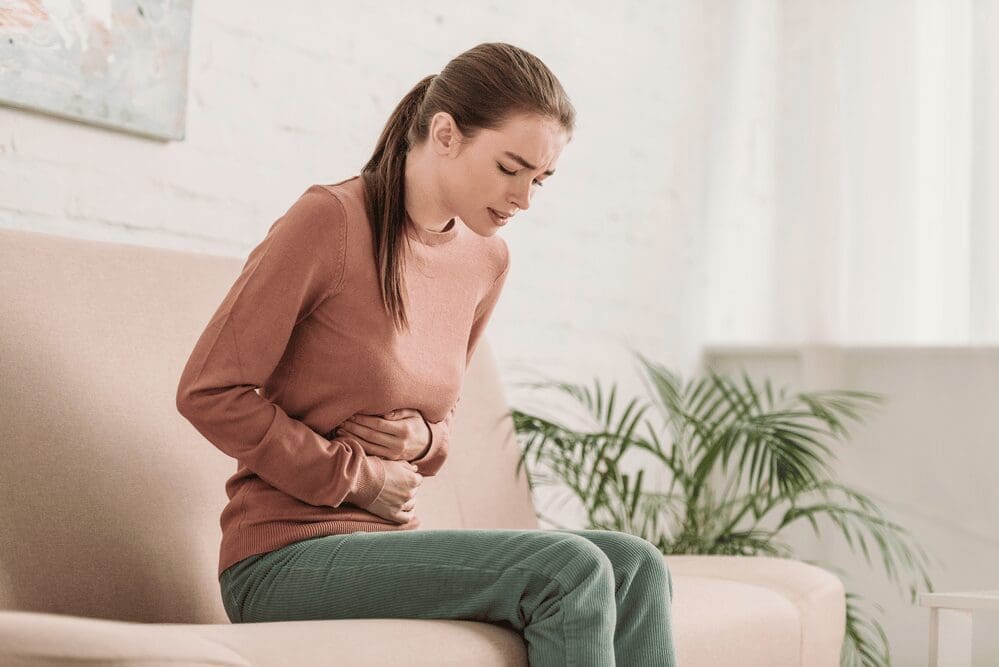If you have been diagnosed with uterine fibroids, or are wondering if they could be the culprit behind your symptoms, we’re here to help you find some answers. North Texas Fibroids has offices in Cedar Hill, Dallas, and Flower Mound, TX, and our teams specialize in fibroid treatment.
What Causes Uterine Fibroids?
Hormone Levels Likely Play a Role
While there is no one definitive answer, the growth of uterine fibroids seems to be promoted or affected by higher hormone levels, such as estrogen. Progesterone and estrogen both play a role in developing the uterine lining throughout the menstrual cycle. Factors such as pregnancy or certain medications can also affect hormone levels and may either contribute to fibroid development or expedite their growth.
Women who are considered to be in their “childbearing years” are the most likely candidates to develop these fibroids. Women who have gone through menopause seem less likely to form fibroids, possibly due to a natural reduction in estrogen levels. Girls who haven’t reached puberty are also less likely to develop fibroids.
Other Factors That May Increase Your Fibroid Risk
Alcohol
While there hasn’t been enough research to prove whether or not alcohol can cause fibroids, it does seem as though alcohol consumption can affect fibroids that are already present in the body. Since hormones can play a role in fibroid development, the fact that alcohol can affect hormone levels may be to blame for this phenomenon.
Alcohol can interfere with how estrogen is metabolized in a woman’s body, which can lead to a rise in blood estrogen levels. Since there is a correlation between higher estrogen levels and uterine fibroid development, it may be wise to limit your alcohol consumption if you are at risk of fibroids or suspect that you already have them.
Foods High in Refined Sugar
Foods with high levels of refined sugars and simple carbohydrates can worsen or trigger fibroid development. When we eat these foods, it can spike our body’s blood sugar levels. This, in turn, can lead to an excess of insulin production, and weight gain.
These foods can also contribute to inflammation, which may put pressure on fibroids and worsen the painful symptoms associated with them.
Excess Body Weight
Excess body weight is associated with a higher risk and prevalence of uterine fibroids.
Hair Relaxers
Hair relaxers may contribute to an earlier onset of menstrual cycles in young girls, and could lead to an increased risk of developing fibroids as well. The ingredients found in hair relaxers may gain access to the body during use, especially if the relaxers cause irritation, lesions, or burns on the scalp.
If you have sensitive skin or have a family history of fibroids, you may want to avoid hair relaxers.
Red Meat
A diet high in red meats like beef could be linked to a higher risk of fibroid development. As there is no link between fibroids and fish consumption, replacing some of your red meat consumption with alternatives like fish may be a good protective measure.
Factors That May Decrease Your Fibroid Risk
Citrus and Other Fruits
There are many benefits to adding plenty of fruits and veggies to our diets, but one of these benefits may include preventing fibroids. Citrus fruits in particular seem to offer some protection against uterine fibroid development.
Vitamin D
The dairy lovers out there can rest easy knowing there is currently no known link between fibroid development and dairy consumption. In fact, since most milk is fortified with vitamin D, you may be able to enjoy a glass of milk and protect yourself from fibroids at the same time.
Vitamin D deficiency can significantly increase your risk of developing fibroids, so drinking some milk may help you maintain healthy calcium levels and support your vitamin D intake all at once.
Decreased Stress Levels
When the body is under stress, the brain tells it to produce extra hormones. Due to the link between fibroids and hormone levels, this change can lead to a flare-up of fibroids that had been previously asymptomatic. The pain that often accompanies the rapid growth of fibroids can make matters even worse by increasing stress, leading to a vicious cycle.
One of the best protective measures you can take when it comes to your physical health is to support your mental health. After all, the brain is part of the body, and all the members of the body tend to interact with and affect one another. Try to get enough sleep at night and fuel your body with foods that help support mental and physical wellbeing. Exercise can be another great way to reduce stress and support your health.
Exercise
Speaking of exercise, regular exercise may help some patients lower excess estrogen levels. In addition to that, exercise and diet adjustments can lower the Body Mass Index, or BMI. Since a high BMI is associated with fibroid development, lowering your BMI can serve as protection against fibroids.
Vegetables
Vegetables are rich in fiber, which can be beneficial. Cruciferous vegetables in particular could lower your fibroid risk levels. Broccoli, brussels sprouts, and cabbage may all be a good addition to your diet if you’re looking to improve fibroid symptoms or reduce your chance of developing them.
FAQ About Fibroids
1. What if Exercise Triggers My Fibroid Symptoms?
Exercise is crucial to maintaining health and provides countless benefits, but if you’re suffering from acute symptoms of fibroids, you may find vigorous exercise applies too much pressure and is too painful. In that case, walking and swimming are two options that are gentle on the body while still providing health benefits.
That said, if you’re at the point where your fibroids are interfering with your ability to exercise and stay healthy, it may be time to consider treatment. Fibroids can leave patients feeling drained, pained, and discouraged. Our team offers Uterine Fibroid Embolization to fight back against fibroids and help our patients reclaim their comfort and wellbeing.
2. How Can I Get Diagnosed With Uterine Fibroids?
Your Symptoms and Clinical History
If you discuss your symptoms with a gynecologist or doctor, they may be able to determine if you have fibroids based on your symptoms and clinical history. The presence of enough fibroid symptoms may be a good enough reason to suspect the existence of fibroids, due to how common they are.
Many fibroids come and go without any noticeable symptoms. The size and placement of fibroids play a role in how noticeable they are, and whether or not treatment should be pursued. Symptoms of fibroids affecting the uterus can include:
- A sense of pressure or pain in the pelvis
- Constipation
- Heavy periods
- Leg and back pain
- Needing to urinate more frequently
- Not being able to completely empty the bladder
- Periods lasting longer than a week
Physical Examination
During a routine physical exam, your gynecologist or doctor may discover one or several fibroids by either feeling the fibroids, noticing a change in the uterus, or noting discomfort in certain areas.
Ultrasound
Ultrasounds are a quick and easy way to search for fibroids. Not only should it be able to find any fibroids large enough to affect your uterus, but it can also give you a general idea of how large the fibroids are. This allows you to monitor them for growth. Many fibroids decrease on their own, but some will continue to grow and will require treatment.
MRI
An MRI is one of the best diagnostic tools for fibroids, which is why our team prefers to use it. Its comprehensive imaging abilities can give us a lot of information about fibroids, including their position and size. It can also detect fibroids that ultrasounds can’t. If it turns out that fibroids aren’t the cause of your symptoms, an MRI may be able to discover a different potential source of your pain.
3. Why Consider Treatment?
Many people who have uterine fibroids may never know it since in the best case scenarios they can come and go inconspicuously. Unfortunately, not everyone is so lucky, and some patients find themselves with symptoms so severe that it’s affecting their ability to work or enjoy activities they used to love.
Fibroids should not stand in the way of you living your life. If you’re battling the symptoms of fibroids, it may be time to look into treatment so you can achieve better comfort levels and reclaim your life.
We Can Help You Find the Answers
While looking up information can be helpful and empowering, the best way to pursue an accurate diagnosis and the right treatment options is to talk directly with professionals. Our experienced staff is ready to help you figure out the best options for your unique needs. Contact North Texas Fibroids in Flower Mound, Dallas, and Cedar Hill, TX, today to set up your consultation.


